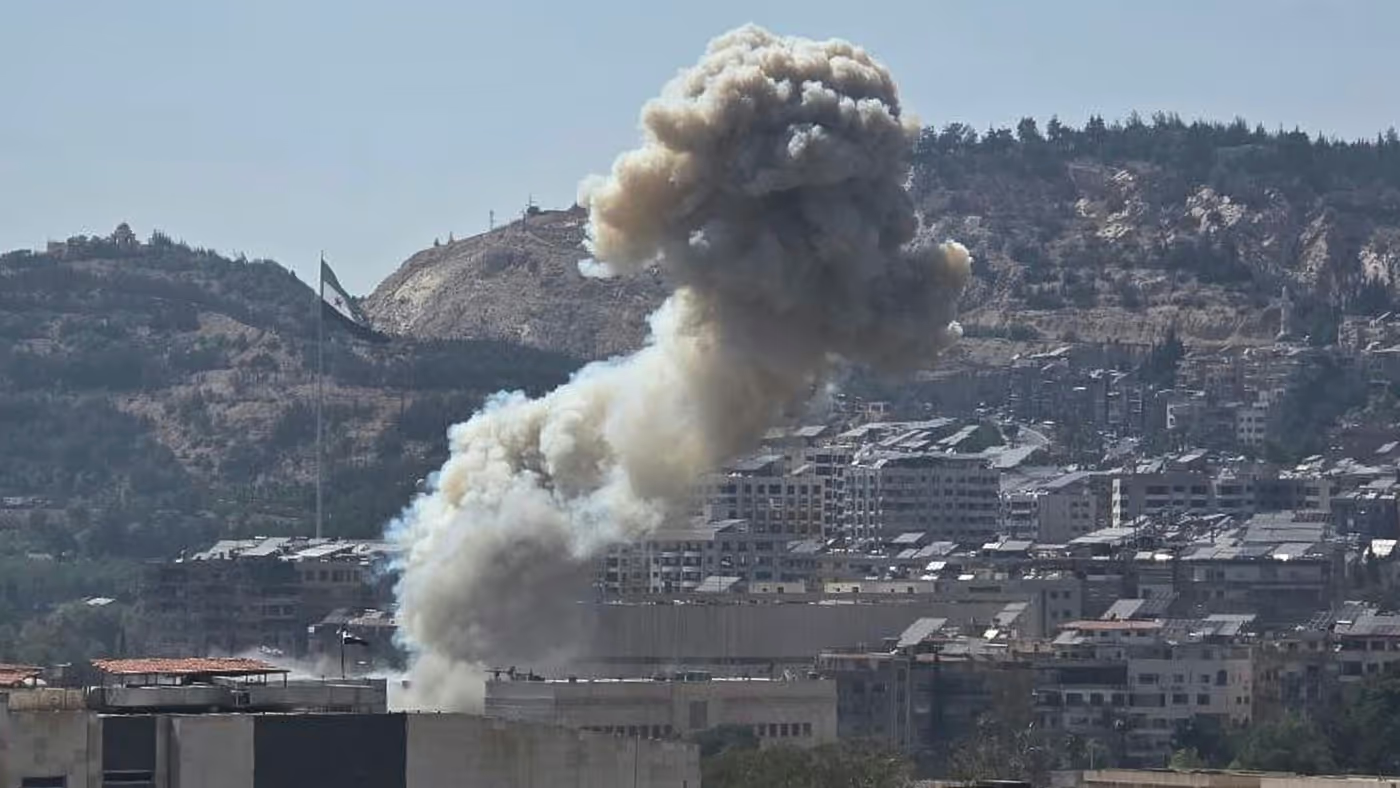
On July 16, Israeli warplanes bombed parts of Damascus, including the defense ministry and a site near the presidential palace. While the Israeli government claims that its recent airstrikes in Syria are meant to protect the Druze minority, the absence of similar interventions during the bloodiest years of the Syrian civil war suggests that more is at play.
1. Israel’s Domestic Politics
The timing of the airstrikes coincides with a serious political crisis for Prime Minister Benjamin Netanyahu. This week, two key ultra-Orthodox parties—United Torah Judaism (UTJ) and Shas—announced their exit from the governing coalition. They criticized Netanyahu over the failure to exempt their constituents from military draft. With both UTJ and Shas gone, Netanyahu is left with just 50 seats in the 120-member Knesset—a minority. Their departures put Netanyahu’s coalition and his political survival in jeopardy.
At such moments of domestic vulnerability, Netanyahu has usually turned to military action, as detailed in a recent New York Times article. Whether by prolonging the war in Gaza or launching strikes in Lebanon and Iran, Netanyahu has often used military escalation as a political survival tactic. While national security and regional strategy are undoubtedly part of the calculus, the fact that these strikes usually come just as his coalition collapses raises questions about political motives.
2. Israeli Mistrust of Syria’s New Leadership
The Israeli government has expressed deep mistrust toward Hayat Tahrir al-Sham (HTS), a group rooted in jihadist ideology. Israeli officials argue that if HTS consolidates power in Syria, it will inevitably pose a threat to Israeli security.
The massacres of Alawites in March, growing instability in Sweida, and the Kurds’ rejection of a unitary state all point to Syria’s continued political fragility. In this context, Israel has adopted a policy aimed at weakening Syria’s central authority and encouraging fragmentation. This strategy involves supporting the Druze in the south and fueling separatist tendencies among the Kurds in the east.
3. Undermining U.S.–Syria Normalization
The attacks on Syria’s military headquarters and near the presidential palace are a warning—directed at Damascus over the Druze. On the other hand, a key motivation behind the recent Israeli strikes may be to undermine the tentative steps toward normalization between the United States and Syria. President Trump has praised the new leadership in Syria, and the US companies started to invest in the country.
But for Israeli officials, the Sharaa government is not a partner—they see it as a jihadist-dominated regime that cannot be trusted and must not be legitimized. Thus, these recent strikes may also serve as a “provocation”—a deliberate attempt to push Syria into retaliating militarily, thereby wrecking the fragile process of U.S.–Syria normalization. If Sharaa responds, it would confirm Israeli claims of his government’s hostile nature and potentially halt any further engagement from the U.S. In this sense, the strikes are not just about restraint—they may also be about undermining diplomatic engagement with Syria.
4. Upsetting the Regional Balance of Power
Egypt and Jordan, two of the few Arab governments that maintain diplomatic relations and strong security ties with Israel, have condemned the recent Israeli strikes on Syria. More significantly, as Israel's military actions further erode the Syrian government’s already limited control, the risk of Turkish involvement increases.
If HTS loses its hold over territories due to local rebellions or external pressure, Turkey may intervene militarily to support its allies in Syria, including HTS. Such a move would raise the stakes and likely deepen tensions between Turkey and Israel. In any case, Syria will likely remain a persistent source of friction in Turkish-Israeli relations.
Conclusion
The strikes on Syria’s general staff and areas near the presidential palace were likely intended not just to deter Damascus from taking further action in the south but also to complicate the diplomatic track with Washington. If the current pattern continues, and if Syria descends further into chaos, the result could be a resurgence of civil war conditions.
For now, the U.S. has asked Israel to halt its operations in Syria, and the clashes may subside soon. But Israel’s long-standing goal of preventing any hostile regime from consolidating power in Damascus—and the turmoil in Israeli politics—are unlikely to disappear.